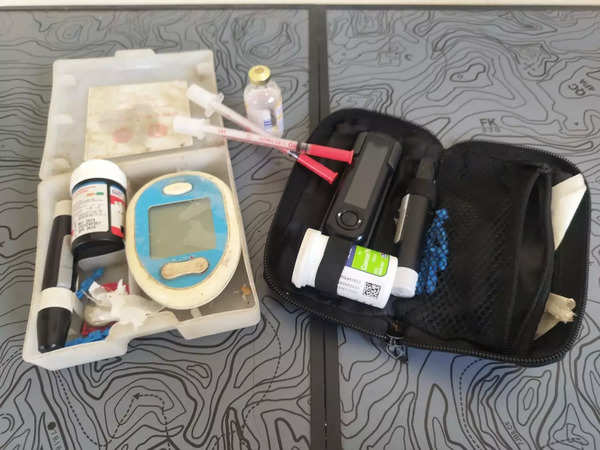
“It’s not just about this coolie, but type 1 diabetes is proving to be a very costly affair even for the middle-class,” says Prashanth Mani, president of Tamil Nadu Type 1 Diabetes based in Chennai, who made that “life-saving” call to the coolie from Hossur.
After the family was assured that the foundation would help tide over the medical expenses of the children, with help from the state government, did the coolie agree to abort the suicide plan.
Type 1 diabetes, often referred to as ‘childhood diabetes’, is a chronic medical condition which can be controlled only with insulin injection taken at least four times a day. Each insulin shot has to be preceded by a blood sugar test to decide on the dosage to be administered.
It’s not just the astronomical price of the insulin, blood test strips and other paraphernalia required to manage blood sugar levels, what is making things more difficult for people living with type 1 diabetes is the goods & services tax (GST) that has been imposed on these “life-saving” products, says stakeholders.
Over the past three or four days, parents of children and teenagers associated with various diabetes support groups across the country have dashed off mails to the Union finance minister, appealing for reduction in GST – from the current 18% to 15%. The GST council is slated to convene its meeting on Saturday (Dec 21).
“About 2,000 people have signed our petition put up on change.org while parents of children living with type 1 diabetes have sent out around 40 emails to the Union finance ministry,” said Harsh Kohli who is associated with various diabetes support group across the country.
“We also have the support of 50 senior paediatric endocrinologists,” he told TOI.
Kohli, who is from New Delhi, said he often comes across families of such children who scrimp on insulin dosage to save a little money. “Those from needy families take lesser doses of insulin as compared to what the doctor has advised… it helps them economise,” he says, pointing out why the medical condition is often referred to as a “king’s disease”.
Taxation relief on donations received through corporate social responsibility by organisations reaching out to children with diabetes should be extended to people from middle-income families too, opines Vipul Mehta, managing trustee of Juvenile Diabetes Foundation (Maharashtra Chapter). “Or, tax relief can be provided at the individual level for expenses incurred on treatment of those having type 1 diabetes,” says Mehta.
Lakshminarayana Varimadugu, president of Sweet Souls Society for Type 1 Diabetes, a support group based in Hyderabad, sums it up saying: “Insulin is not a luxury; it’s a life-saving drug for us. How can tax be imposed on a life-saver?”
The financial burden of living with type 1 diabetes spurred another family of four from Tamil Nadu to die by suicide two years ago. This labourer’s family had two daughters, then aged seven and three. The elder girl had been living with the illness for three years and the younger one had just been diagnosed. Media reports said that the labourer threw both the girls into the Cauvery, after which the parents too jumped in.
Citing this case as a “cruel reminder” of how the medical expenses can drive the common man to take the drastic step, the Tamil Nadu government has now brought in a slew of measures to ease the financial woes of economically underprivileged children living with the condition. “The family’s suicide still rattles us,” Mani says, adding: “We do not want this to be repeated ever.”




